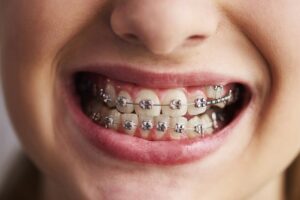
Orthodontics and Mental Health: How a Confident Smile Boosts Self-Esteem
Did you know that 36% of people believe that having an attractive smile contributes to their overall success? Your smile plays a significant role in your confidence and mental well-being. From boosting self-esteem to enhancing social interactions, the impact of a straighter smile goes beyond aesthetics. We’ll delve into the psychological benefits of orthodontic procedures and how they can positively influence one’s quality of life. Let’s uncover how achieving a better smile can lead to improved self-assurance and emotional wellness.
The Psychological Impact of Orthodontic Treatment
Improved Self-Image
Orthodontic treatment has psychological benefits that go beyond just straightening teeth. When someone undergoes orthodontic treatment and achieves a better smile, it can lead to an improved self-image. This means feeling more positive about one’s appearance, which in turn affects overall confidence and mental well-being. For example, imagine a teenager who used to feel insecure about their crooked teeth but after getting braces, they start smiling more often and feeling better about themselves.
Orthodontics can have a profound impact on an individual’s psychology by addressing insecurities related to their smile. People with misaligned or crowded teeth may experience social anxiety or low self-esteem due to the appearance of their smile. By undergoing orthodontic treatment and achieving a straighter smile, individuals can experience a significant boost in confidence and mental well-being.
Boost in Confidence
The effects of orthodontic treatment on an individual’s confidence are remarkable. A study published in the American Journal of Orthodontics & Dentofacial Orthopedics found that patients experienced substantial psychological benefits from having undergone orthodontic treatment. They reported feeling happier, more confident, and experiencing improved social interactions as a result of their enhanced smiles.
Social Benefits of a Straight Smile
Enhanced Social Interactions
A straighter smile can significantly impact your social life by boosting confidence. When you feel good about your smile, it’s easier to engage in conversations and make eye contact, leading to more meaningful interactions. People are naturally drawn to those who exude self-assurance, and a confident smile can help create positive first impressions.
Having a perfect smile can also lead to increased laughter and smiling during social activities. This positivity is contagious and can help improve the overall atmosphere in various settings, making people more comfortable around you. A beautiful smile not only enhances your own mood but also contributes to the enjoyment of others’ lives.
Positive Impact on Relationships
The benefits of a straighter smile extend beyond casual interactions. It plays a crucial role in building and maintaining relationships. Feeling good about your facial appearance allows you to express yourself freely without feeling self-conscious about your teeth or how your smile looks.
Moreover, individuals with straight teeth often exhibit increased self-assurance in social situations, which helps them navigate through different experiences with ease. Such confidence positively influences their personal relationships as they become more open and engaging due to their improved sense of self-worth.
Enhancing Self-Esteem with Orthodontic Solutions
Empowerment and Self-Worth
Improving dental alignment through orthodontic treatment can have a significant impact on an individual’s self-esteem. When individuals undergo the process of straightening teeth with braces or other treatment options, they often experience a boost in their confidence and self-worth. The journey from having misaligned or crooked teeth to achieving a straight and aligned smile can be empowering, leading to an increased sense of self-esteem. This improvement in dental alignment phase not only enhances one’s physical appearance but also contributes to a positive body image, which is crucial for overall mental well-being.
Orthodontic interventions go beyond just correcting overbite or misaligned teeth; they play a vital role in strengthening how individuals perceive themselves. As individuals witness the transformation of their smiles, they are likely to experience a significant increase in their self-confidence and empowerment. For instance, someone who previously felt conscious about smiling due to their misaligned teeth may find themselves more willing to express joy without reservation after undergoing orthodontic treatment.
Strengthening Self-Esteem
The impact of orthodontics on mental health goes beyond personal empowerment; it extends to how individuals interact with others as well. A better smile resulting from orthodontic solutions can positively influence interpersonal relationships by boosting one’s confidence during social interactions. This newfound confidence often leads to improved communication skills and enhanced social connections, contributing further to an individual’s overall sense of well-being.
Orthodontics and the Improvement of Self-Worth
Impact on Overall Self-Worth
Orthodontic treatment can have a profound impact on an individual’s self-worth. When someone undergoes orthodontic care, the improvement in their smile often leads to a significant boost in their confidence and self-esteem. This is particularly true for individuals who have felt insecure about their teeth or smile for many years. The process of enhancing one’s oral health and aesthetics through orthodontics can result in a remarkable transformation, not just physically but emotionally as well.
For example, adult patients who may have lived with misaligned teeth for most of their lives might experience a newfound sense of pride and self-assurance after completing their orthodontic journey. The positive changes to their appearance often translate into improved mental well-being, leading to higher levels of satisfaction with life overall.
Strengthening Self-Worth Through Orthodontics
The improvements brought about by orthodontic treatment go beyond just aesthetics; they play a vital role in strengthening an individual’s overall self-worth. As patients witness the alignment and enhancement of their teeth over time, they begin to feel more comfortable expressing themselves without feeling insecure about their smiles. This contributes significantly to an increase in confidence, which has far-reaching effects on various aspects of life, including social interactions and professional opportunities.
Addressing Speech and Preventing Injuries for Confidence
Improved Speech Clarity and Confidence
Orthodontic treatment can significantly improve speech clarity by correcting dental issues such as misaligned teeth or jaw irregularities. When these problems are addressed, individuals may experience a notable enhancement in their ability to articulate words clearly. This improvement in speech can lead to increased confidence, especially when communicating with others in various social settings. For instance, someone who used to feel self-conscious about speaking due to misaligned teeth might find newfound confidence after undergoing orthodontic treatment.
Moreover, the process of addressing speech-related concerns through orthodontics can positively impact an individual’s consciousness about their appearance. Feeling more comfortable and confident while speaking allows individuals to focus on their message rather than being distracted by worries about how they sound or look.
Preventing Injuries and Boosting Confidence Through Orthodontics
Another aspect of orthodontic treatment that contributes to boosting confidence is the prevention of injuries caused by dental irregularities. Misaligned teeth or jaw issues can sometimes lead to accidental bites inside the mouth or injuries during physical activities like sports. By correcting these dental problems through orthodontics, individuals reduce the risk of such injuries, which in turn enhances their overall sense of well-being and self-assurance.
For example, someone participating in contact sports may feel more secure knowing that their corrected bite alignment reduces the likelihood of sustaining oral injuries during games or practices.
The Role of Orthodontics in Adolescent Mental Health
Positive Impact
Orthodontic care plays a crucial role in boosting confidence and self-esteem in adolescents. When teens have misaligned teeth or other dental issues, it can significantly impact their mental well-being. By addressing these concerns through orthodontics, professionals can positively impact adolescent mental health.
Orthodontic treatments such as braces or clear aligners not only improve dental health but also contribute to an individual’s overall well-being. When adolescents undergo orthodontic procedures to correct their smiles, they often experience a significant boost in confidence and self-esteem. This positive change directly influences their mental health by reducing feelings of insecurity and improving their overall outlook on life.
Personal Transformation
Consider the story of Sarah, a teenager who struggled with low self-esteem due to her crooked teeth. After undergoing orthodontic treatment, she experienced a remarkable transformation in her confidence levels. With her newly aligned smile, Sarah felt more comfortable speaking up in class and engaging with peers without feeling self-conscious about her appearance.
The psychological impact of orthodontics on adolescents cannot be overstated. It goes beyond just physical aesthetics; it’s about empowering young individuals to feel better about themselves mentally and emotionally.
Coping with Orthodontic Treatment and Mental Well-being
Strategies for Coping
Feeling stressed or isolated during orthodontic treatment is common. Managing these feelings involves finding strategies to cope. Talking to friends or family about the difficulties can provide emotional support. Engaging in activities that make you happy, like hobbies or exercise, can help reduce stress.
It’s important to remember that discomfort during treatment is temporary and will lead to improved dental health and a better smile. Focusing on the end result can act as a motivating factor in coping with the challenges of orthodontic care.
Balancing Mental Well-being
Balancing mental well-being while undergoing orthodontic care requires self-care practices. Taking time for relaxation, practicing deep breathing exercises, and mindfulness techniques can alleviate stress and improve overall mental health.
Seeking professional support from therapists or counselors can be beneficial in managing any overwhelming emotions experienced during orthodontic treatment. They offer tools and coping mechanisms tailored to individual needs.
The Confident Smile Journey: From Consultation to Outcome
Importance of Consultation
A consultation is the first step in the journey to a confident smile. It’s crucial because it allows orthodontists to understand your concerns and discuss treatment options. During this phase, you can ask questions about the process and express any fears or anxieties you may have. This open dialogue helps build trust and ensures that both you and your orthodontist are on the same page.
Consultations also involve assessing your oral health, discussing treatment timelines, and setting realistic expectations for the outcome. For example, if you’re considering braces or clear aligners, your orthodontist will explain how they work and what kind of results you can anticipate based on your specific case.
Steps Involved in Achieving a Confident Smile through Orthodontics
The journey to a confident smile through orthodontics involves several steps. After the consultation, if you decide to proceed with treatment, the next step typically includes getting impressions or 3D scans of your teeth. These are used to create custom-made appliances like braces or aligners tailored specifically for your mouth.
Once treatment begins, regular appointments are necessary for adjustments and progress checks. Over time, as your teeth gradually shift into their new positions, you’ll start noticing changes in appearance which can positively impact how you feel about yourself.
During these visits, it’s common for patients to fill out questionnaires regarding their experiences with treatment so far—this feedback helps orthodontists tailor care according to individual needs.
Summary
Congratulations! You’ve now seen how orthodontic treatment goes beyond just straightening teeth. It has a significant impact on mental health by boosting confidence, self-esteem, and overall well-being. The journey to a confident smile involves addressing not only physical aspects but also emotional and psychological factors. Remember, your smile is not just a curve – it’s the key to unlocking your confidence and self-worth.
Now that you understand the powerful link between orthodontics and mental health, take the next step to prioritize your well-being. Whether it’s scheduling a consultation or supporting someone considering orthodontic treatment, you can make a difference. Embracing the transformative effects of a confident smile can lead to a happier, more positive outlook on life. Start your journey towards a better smile and improved mental well-being today!
Frequently Asked Questions
How does orthodontic treatment impact mental health?
Orthodontic treatment can significantly boost confidence and self-esteem, leading to improved mental well-being. A better smile can enhance social interactions and positively influence self-worth, contributing to a more positive mindset.
What are the social benefits of having a straight smile?
A straight smile can lead to increased social confidence and improved relationships. It may also help individuals feel more comfortable in social situations, leading to enhanced communication and interaction with others.
Can orthodontic solutions improve self-esteem?
Yes, orthodontic treatments such as braces or aligners can greatly improve self-esteem by correcting dental imperfections. As teeth alignment improves, individuals often experience a notable increase in their overall sense of worth and confidence.
Does orthodontics play a role in adolescent mental health?
Absolutely! Orthodontic treatments during adolescence not only contribute to physical well-being but also play a crucial role in enhancing adolescents’ mental health by boosting their confidence and improving their self-image.
How does coping with orthodontic treatment affect mental well-being?
Coping with orthodontic treatment requires patience and perseverance but the end result is often incredibly rewarding. Overcoming challenges during treatment can build resilience and foster a sense of accomplishment, positively impacting mental well-being.
Bruno Orthodontics offers Invisalign, braces, and other orthodontic treatment for adults, teens, and children in an award-winning office in Chevy Chase. Dr. Jill Bruno is a Diamond+ Provider for Invisalign, putting her in the top 1% of Invisalign doctors. Convenient online scheduling and virtual consults are available for new and current patients.



